Fatḥ Makkah: Tolerance Becomes Foundation of Triumph
Forgiveness and tolerance are among the two utmost conducts of the Prophet Muhammad ﷺ that he has always been known for. There were several instances throughout the life of the Prophet ﷺ when he showed kindness and generosity towards others where if someone else were in his place wouldn't have been the same. This is the reason that a massive proportion of Muslims embraced Islam of this lenient behaviour of the Prophet ﷺ. If he hadn't had this behaviour, there was a chance that the Prophet wouldn't have made such a particular space in the people’s hearts the way he did today. The Holy Quran mentioning this approach of the Prophet Muhamad ﷺ said:
فَبِمَا رَحْمَةٍ مِّنَ اللَّهِ لِنتَ لَهُمْ وَلَوْ كُنتَ فَظًّا غَلِيظَ الْقَلْبِ لَانفَضُّوا مِنْ حَوْلِكَ فَاعْفُ عَنْهُمْ وَاسْتَغْفِرْ لَهُمْ وَشَاوِرْهُمْ فِي الْأَمْر
ِ (It is out of Allah’s mercy that you O Prophet have been lenient with them. Had you been cruel or hard-hearted, they would have certainly abandoned you. So, pardon them, ask Allah’s forgiveness for them, and consult with them in ˹conducting˺ matters.) (Holy Quran: 159/03).
Of the most outstanding examples of the Prophet Muhamad's ﷺ tolerance and forgiveness is the Fatḥ Makkah (Conquest of Makkah).
What instigated Fatḥ Makkah?
Before we go into details about what happened in Fatḥ Makkah, it is essential to know what instigated or became the reason for Muslims' journey against the people of Makkah. During the end of the seventh year of the Hijri calendar, the Quraish and their allies Banu Bakar violated the peace terms by attacking the Bani Khuzaimah, who allied with the Muslims in the treaty of Hudaybiyya. As per the treaty, both of the two groups were supposed to maintain peace within the communities, and if by chance something breaches the treaty by not following its peace instructions, the other party would take an aggressive stance to ensure its existence. Similarly, the Bani Khuzaimah came to the Prophet ﷺ asking for peace and protection. From there came the sense of ending this series of injustice and oppression carried out by the disbelievers and specifically by the polytheists of Makkah. Now, the Prophet ﷺ gathered an army of ten thousand soldiers and set out on a journey against these men of injustice and idolatry. This was the reason that instigated the Muslims to go for the conquest of Makkah.
What happened in Fatḥ Makkah?
It was during the month of Ramadan when the Prophet ﷺ left for Makkah on the 10th of Ramaḍān in the 8th Hijri with an army of ten thousand soldiers. After they reached ‘Marr-uz-Zahran’, they set up their camp over there, and the Prophet ﷺ decided to move forward the next as it was only a journey of a day from there. As a part of military tactics, the Prophet ﷺ asked the army to light up light objects such as stoves so that the opponents would see it scarcely as it would stretch up to miles. This tactic worked very well when Abu Sufyan reached ‘Marr-uz-Zahran' , delegated by the Quraish, to ask the Prophet ﷺ to abandon his project and get back to Madina as soon as possible. Upon seeing this, he asked for a personal meeting and the Prophet ﷺ granted him permission. During the meeting, the Prophet ﷺ asked him, "Has the time not come, o' Abu Sufyan, for you to acknowledge that there is no deity except Allah and that I am His Messenger?" Upon listening to this, Abu Sufyan hesitated for a while, but he embraced Islam wholeheartedly. Then he was sent back to prepare the city for the approach of the Prophet Muhamad ﷺ. The Prophet ﷺ entered Makkah on his favourite camel Al-Kaswa with a black-coloured turban, having Usama Ibn Zaid sitting behind him. During his entry, the Prophet ﷺ recited some of these verses of Surah Al-Fatḥ:
إِنَّا فَتَحْنَا لَكَ فَتْحًا مُّبِينًا لِّيَغْفِرَ لَكَ اللَّهُ مَا تَقَدَّمَ مِن ذَنبِكَ وَمَا تَأَخَّرَ وَيُتِمَّ نِعْمَتَهُ عَلَيْكَ وَيَهْدِيَكَ صِرَاطًا مُّسْتَقِيمًا وَيَنصُرَكَ اللَّهُ نَصْرًا عَزِيزًا
(Indeed, We have granted you a clear triumph O Prophet so that Allah may forgive you for your past and future shortcomings, perfect His favor upon you, guide you along the Straight Path, and so that Allah will help you tremendously.) (Holy Quran: 48: 1-3)
With such a generous attitude, the Muslim army entered the city with peace and tolerance in their hearts. Against the tradition of Arabs, no house was robbed, and all the men and women had their respect and chastity intact. The Prophet ﷺ granted a general amnesty to the entire population of Makkah, saying:
“Refuge is for the person who lays down his weapon; refuge is for the person who shuts his door; refuge is for the person who enters the Holy Ka'bah''.
However, the Prophet ﷺ asked the companions to destroy all the idols and pagan images of worship. Upon this order, around 350 idols were thrown away in the Holy Kaʿbah. The Prophet ﷺ himself had destroyed a wooden pigeon which was hanging from the roof of the Kaʿbah. After the Prophet Muhamad ﷺ purified the Holy Kaʿbah and offered namaz, he stood in front of a massive crowd of thousands of disbelievers and polytheists, among whom were the chiefs of the Quraish. Upon having a look at them shivering with fear and terror, the Prophet ﷺ delivered a sermon to the assembled people in which he clarified the essence of brotherhood in the words of the Quran, saying:
يَا أَيُّهَا النَّاسُ إِنَّا خَلَقْنَاكُم مِّن ذَكَرٍ وَأُنثَىٰ وَجَعَلْنَاكُمْ شُعُوبًا وَقَبَائِلَ لِتَعَارَفُوا ۚ إِنَّ أَكْرَمَكُمْ عِندَ اللَّهِ أَتْقَاكُمْ ۚ إِنَّ اللَّهَ عَلِيمٌ خَبِير
(O humanity! Indeed, We created you from a male and a female, and made you into peoples and tribes so that you may get to know one another. Surely the most noble of you in the sight of Allah is the most righteous among you. Allah is truly All-Knowing, All-Aware.) (Holy Quran: 13/49)
After this, the Prophet ﷺ turned to the oppressors, among whom were spreaders of thorns on the path, conspirators of dropping a stone and killing him, attackers of Sayyiduna Zainab, the killers of the uncle of the Prophet ﷺ, Sayyiduna Hamza, and whatnot, and said: 'Oh Quraysh! How will I treat you today, what do you think?’ They altogether responded gently: 'We expect you to treat us in a good way.' Upon hearing this, the Prophet ﷺ said those golden words and forgave all that he suffered for all the years saying:
'Today, I am going to say to you what my brother, Yusuf (عَلَيْهِ السَّلَام), had said to his brothers.' With this, the Prophet ﷺ meant that Allah would question them on the day of judgment and from his part, the Prophet ﷺ has forgiven them.
Spread of Islam after Fatḥ Makkah
After knowing this attitude of the Prophet ﷺ, there came a huge number of Muslims. All these Muslims embraced Islam due to the effective and compassionate behaviour of the Prophet ﷺ with them, and none of them were forced to embrace Islam as some haters of Islam say. These newly reverted Muslims took oath in the Mountain of Safa whereby the people promised that they would not worship any deity afterwards, they would only obey the instructions of Allah and His Prophet ﷺ, and would abstain from theft, adultery, infanticide, lying, backbiting and all the malpractices that Islam prohibits.
During this period in Makkah, the Prophet ﷺ sent his disciples to far flung regions where the light of Islam was yet not lit. Therefore, they preached Islam to the wild tribes and peoples of deserts and helped them understand the true spirit of Islam and the impact it can have in their lives from the teachings and principles of Islam if they embrace Islam. When all these expeditions of preaching Islam peacefully spread in the Makkah and different parts of the world, a huge increase in the number of believers were seen in Islam. Even today, this impactful attitude of the Prophet ﷺ is considered to be the significant reason for spreading Islam in such a generous manner. May Allah bless us to spread our religion to the utmost regions and stick to its teachings till the last breath: Ameen.
About the author: Sirajuddin Shaikh is a PG research scholar at Darul Huda Islamic University, Kerala, India. His research areas include Islamic Studies, the Study of human behavior, and Islamic psychology. He can be contacted at muhammadsiraju818@gmail.com
Disclaimer
The views expressed in this article are the author’s own and do not necessarily mirror Islamonweb’s editorial stance.

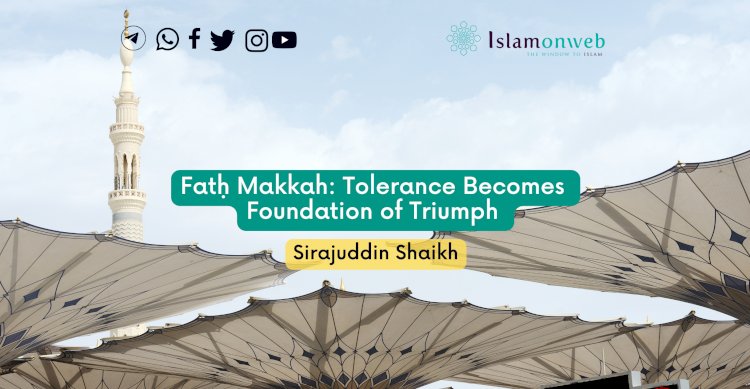


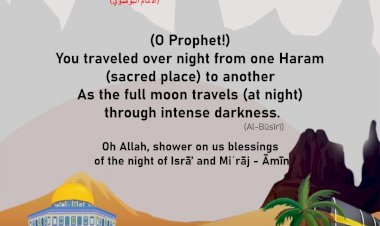
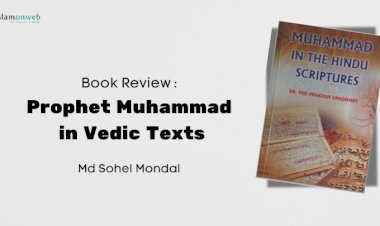
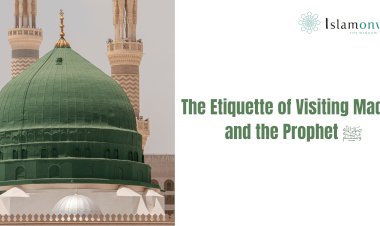
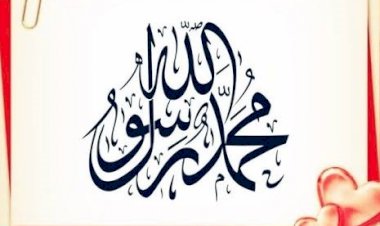
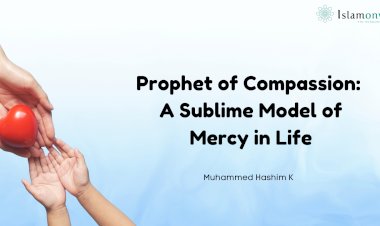
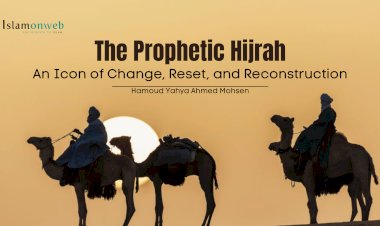














Leave A Comment